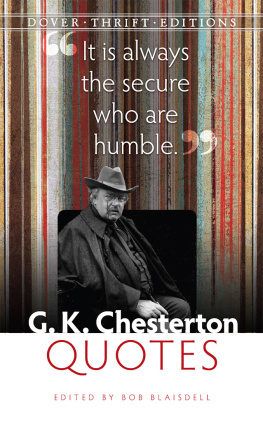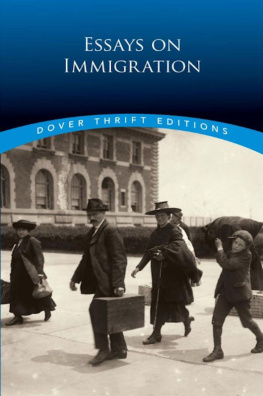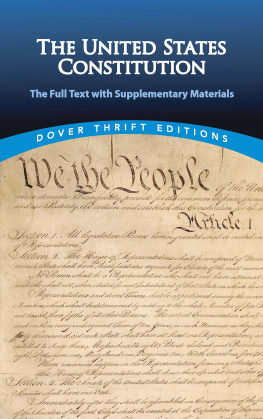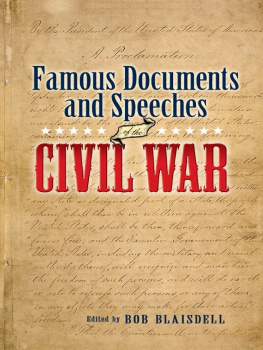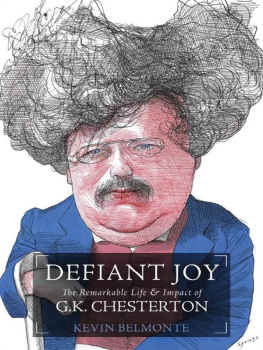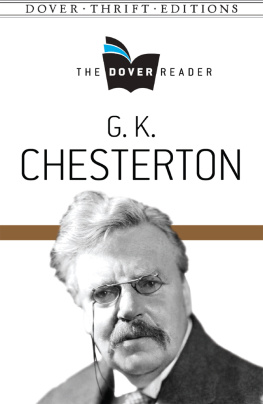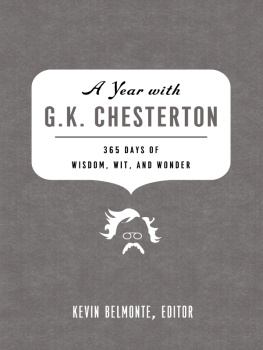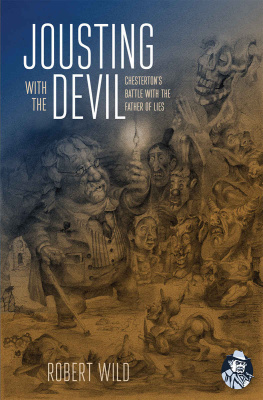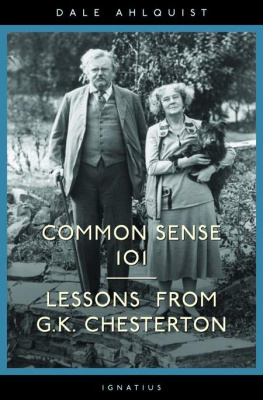
G. K. Chesterton Quotes
Edited by
BOB BLAISDELL

DOVER PUBLICATIONS, INC.
Mineola, New York
DOVER THRIFT EDITIONS
G ENERAL E DITOR : M ARY C AROLYN W ALDREP E DITOR OF T HIS V OLUME : A LISON D AURIO
Copyright
Copyright 2015 by Dover Publications, Inc.
All rights reserved.
Bibliographical Note
G. K. Chesterton Quotes is a new work, first published by Dover Publications, Inc., in 2015.
International Standard Book Number
eISBN-13: 978-0-486-80438-5
Manufactured in the United States by Courier Corporation
79380X01 2015
www.doverpublications.com
CONTENTS
NOTE
D URING A DISTRACTED fifteen-minute cab ride to deliver an overdue article, Gilbert Keith Chesterton (18741936) could have written or dictated a brilliantly entertaining and polished introductory note to such a book as this. He would have set out by freeing his mind to play, watching as it made surprising and amusing connections. Among twenty other qualities, he had that rare but very real thing, entirely spontaneous style. The words will not come pouring out, any more than the bricks that make a great building come pouring out; they are simply arranged like lightning; as if a man could build a cathedral as quickly as a conjurer builds a house of cards. A long and elaborately balanced sentence, with dependent clauses alternative or antithetical, would flow out of such talkers with every word falling into its place, quite as immediately and innocently as most people would say it was a fine day or a funny business in the papers, wrote Chesterton, not immodestly (though it would have been accurately) of himself, but about his contemporary, the Irish poet William Butler Yeats.
Chesterton was a famously boisterous talker and discussed everything and anything that caught his attention; he wrote as easily as he spoke. He argued with his brother, his friends, allies and himself, and with every author he read. He loved literature and art and adored his wife; he worshipped, eventually, on bended knee, at his adopted faith, Roman Catholicism; he celebrated the simple pleasures of home, food and drink; and he threw himself headlong into criticisms of all suspect theories and ideas, especially those held by his dearest friends. For four decades, his gleeful boldness, alternating or mixing with his modesty and humor, won him readers and friends. Except during a few spells of illness, there was a continuous rushing stream of casual essays, topical articles, biographies, travel writing, and fiction from this huge and excitable man, this diligent and disorderly comedian of thorough seriousness.
It might seem startling and even comic to compare him to Dickens or even to Shakespeare; but what makes him great is what makes them great, and what alone can make a literary man great. It is ideas; the power of generating and making vivid an incessant output of ideas. It is untrue to say that what matters is quality and not quantity. Most men have made one good joke in their lives; but to make jokes as Dickens made them is to be a great man. Chesterton was indeed a great man of literature, though (again) in that quoted assessment, he has just described not himself but this time the novelist Henry James. He could and did write biographies of other great men with the ease, interest and intimacy of a family storyteller. Well-known for composing off the top of his head, he quoted (and misquoted) from memory, and let the details look after themselves. He relied on his rich experiences as a reader of and daydreamer about, for example, Charles Dickens, Robert Browning, William Blake, Chaucer, St. Francis and St. Thomas Aquinas to inform his biographies. The speed at which he wrote seems palpable; he was one of those artists for whom haste is exactly the right speed.
I believe we can imagine something of his composition method in the twenty-first-century work of painter David Hockney; that is, on wall-mounted electronic slates in museums today, we can witness the creation of some of Hockneys iPad paintings through the recording of his strokes on that device. We can watch in five minutes a replay of every line, outline, coloring, contrast and sizing that Hockney made as he painted, for example, the puddle on a country road and the trees spreading above. For Chesterton and Hockney the focus is always on the subject (the objective world is real, insists Chesterton), not themselves, and yet how much pleasure we have in experiencing Chestertons excited composition of an essay or Hockneys depiction of a muddy lane: the object is an object; it can and does exist outside the mind, or in the absence of the mind. And therefore it enlarges the mind of which it becomes a part. The mind conquers a new province like an emperor; but only because the mind has answered the bell like a servant. The mind has opened the doors and windows, because it is the natural activity of what is inside the house to find out what is outside the house. If the mind is sufficient to itself, it is insufficient for itself. For this feeding upon fact is itself; as an organ it has an object which is objective; this eating of the strange strong meal of reality.
* * *
If I touch on the mans life before his work, Chesterton observed as he began a biography of his dear friend and longtime ideological opponent George Bernard Shaw, it will seem trivial; yet taken with his work it is most important. For the optimistic, London-born Chesterton, life and work were good and most important.
His parents raised him and his younger brother Cecil with love and freedom and a liberal, undogmatic religion that naturally went hand in hand with their liberal politics. As a young man he studied illustration for a while at the Slade School of Art, and in 1895 he took a job as an assistant editor at a publisher. He met his wife Frances in 1896 and they married in 1901. She was religious and somber, which he was not. They were unable to have children, which was unfortunate, as Chesterton was forever particularly tactful and delightful with the young. He published his first two books in 1900 and scarcely another year of his life passed without the publication of another two or three. Politically, Chesterton was a democrat, an egalitarian, but too contrarian to be led or to have followers. He was unconventional in dress (that is, slovenly, for which he was caricatured); he was wonderfully warm and sociable, which his wife was not. In 1909, she insisted on their leaving his beloved London for a home in Beaconsfield, some twenty miles away; this move may have benefited his health, because he had fewer opportunities to stay up late drinking, eating, and arguing with his friends.
His brother Cecil died while serving in the armed forces at the end of World War I, and as a result Chesterton took on the ill-fitting job as editor of Cecils magazine, The New Witness. In the early 1920s and again in the 30s, though editing the magazine which was renamed in 1925, to his embarrassment, after himself, G. K.s Weeklyhe toured and lectured in North America. At his lectures, which he casually prepared (that is, he made notes on a topic and then either ignored them or lost them in the jumble of his pockets), he often began by making jokes about his weight. Better to get that conspicuous characteristic out in the open right away! He was a hardy if not happy traveler, visiting the familiar countries of Western Europe and, to his own surprise, Poland and the Middle East. Many readers have revered him for his loud, clear advocacy of the Church, first the Church of England and then slowly and finally for good the Roman Catholic Church, which faith he converted to in 1922. As a man of irrepressible opinions, he could not help himself from becoming one of the most vocal and prominent Catholics in the English-speaking world. He only ever lost his confidence as a conversationalist when he met Pope Pius XI in 1929, who, after Chestertons death in 1936, named the Englishman a gifted Defender of the Catholic Faith.
Next page
